It’s almost become a cliché to say the levels of preparation and planning that go into running a modern inter-county team rival professional setups, but every cliché is born of truth.
On matchday, management teams will work backwards from the throw-in time to ensure that their itinerary is optimised in terms of the pre-match meal, arriving at the venue and their warm-up. But, of course, external factors can meddle with those plans.
Last Sunday, Dublin and Kildare were due to begin their Leinster SFC semi-final game in Croke Park at 4pm but, because the 2pm clash of Louth and Offaly went to extra time, the second match was put back to 4.30pm.

Dejected Kildare players leave the pitch after their defeat in the Leinster GAA Football Senior Championship Semi Final match between Dublin and Kildare at Croke Park in Dublin. Photo by Ben McShane/Sportsfile
It can’t have been ideal for either side, but Kildare made the most of the situation for much of the game. They led by two points at half-time but unfortunately for them they were reeled in as Dublin took victory on a scoreline of 0-14 to 0-12. Would things have been different if the game had begun at the scheduled time? We’ll never know, but, as is so often the case, this was a very avoidable problem.
Crowds
There was no official attendance announced for the double-header but expectations beforehand were for around 20-25,000 supporters – around a quarter full, essentially. In our view, a packed smaller ground always makes for a better atmosphere than a big stadium with swathes of empty seats and the Leinster Council would surely have been better served by hosting the semi-finals at separate provincial venues.
Doing so would also have avoided the issue of Dublin playing at a “neutral venue” which also happens to be the place where they play their home games. While Kildare manager Glenn Ryan had no problem with referee Fergal Kelly’s performance, he felt that the familiarity with Croke Park is something which stands to the Dubs.
“It does benefit them,” he said, “and I’m probably echoing the thoughts of most other counties. But then the sideline, it’s always our players that get told to put the gumshield in by a fourth official or a fifth official.
“It’s always the fourth official telling our sideline to maybe step back a bit, when a mentor from the Dublin team is actually standing in ours. And then you see a sideline ball that’s nowhere near a sideline ball given against you…”
Next Sunday week’s Leinster final against Louth will be in Croke Park and, in the upcoming round-robin All-Ireland series, Dublin are likely to have two of their three matches on Jones’s Road – one home and one considered neutral. They will be favourites against most opponents anyway, so why should they be given any extra advantages?
Counting the cost of GAAGO
This Saturday evening in Páirc Uí Chaoimh should be mouth-watering affair as Cork take on Tipperary in the Munster Senior Hurling Championship (SHC).
The province’s “old firm” are the only unbeaten sides after two rounds of fixtures and the winners will be in the box seat in terms of reaching the All-Ireland series. With 29,104 present in the Páirc for the win over Waterford last Sunday, one would imagine that there will be something close to a full house for the visit of the Premier County.
If you can’t make it in person, you can always watch it – but at a cost of €12. While the television coverage provided by Sky was a source of much debate, its replacement, the streaming service GAAGO, is not without its drawbacks either.
Technology
It’s probably a fair assumption to make that people unable to access Sky are unlikely to be adept with a HDMI cable to transmit something from a laptop to a television or to cast from their table or phone.
And, while most pubs would show Sky, you mightn’t be in luck if you went to the local and asked if they were showing GAAGO.
Sky’s former Saturday evening slot is now the preserve of GAAGO, which was why the clash of Limerick and Clare last week wasn’t available on television.
As Aidan O’Hara of the Irish Independent noted on Twitter, viewers on terrestrial stations had a choice of Sonic The Hedgehog or a documentary about the making of a David Attenborough documentary.
In the interests of fairness, it should be noted that, while an individual game costs €12, there’s a three-for-two deal of €24 and a season pass of €79, working out around a €2 per match. Still, the toothpaste is never going back into the tube.
After the conclusion of the TikTok Women’s Six Nations Championship and Ireland’s failure to win any points, the desired course of action might be a strong dose of, “Let’s never talk about this again.” But, obviously, that would not do anybody any good.
As much as we all want to avoid it, crushing disappointment is a part of sport. And, as much as we may not want to revisit it, it can be used as an educational experience.
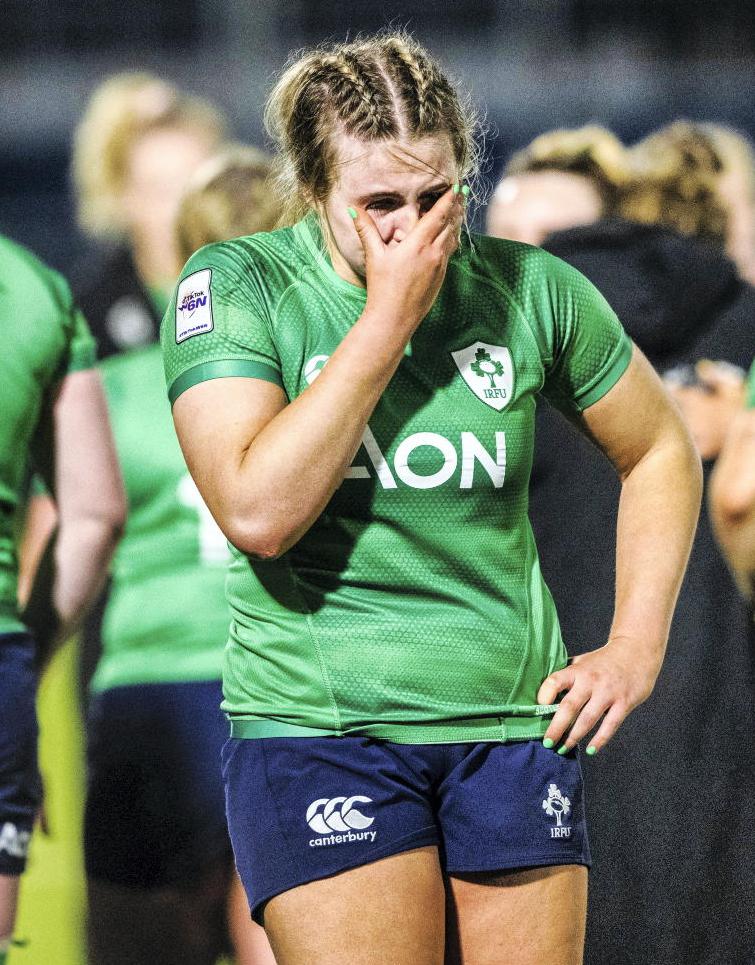
Dorothy Wall of Ireland looks dejected after the TikTok Women's Six Nations Rugby Championship match between Scotland and Ireland. \ Paul Devlin/Sportsfile
We can recall a time when the Ireland men’s team were more likely to win the wooden spoon than challenge at the top of the table in what was then the Five Nations. Improvement came – gradually, and sometimes non-linear – but it came.
The problem, in a sense, for the women’s team, is that successes – the Grand Slam of 2013, World Cup fourth place in 2014 and Six Nations in 2015 – are still in the rear-view mirror and comparison is inevitable.
Niamh Briggs, a star of those teams and coach in the current setup, lamented recently how coverage of the good times could have been more prominent whereas now the spotlight is starker but results aren’t as positive, but she didn’t do so in a complaining sense.
It’s a reflection of the growth of women’s sport that there is more attention afforded to the team, though that might make the disappointment more acute. There is no quick fix, but every journey has to start somewhere.
It’s almost become a cliché to say the levels of preparation and planning that go into running a modern inter-county team rival professional setups, but every cliché is born of truth.
On matchday, management teams will work backwards from the throw-in time to ensure that their itinerary is optimised in terms of the pre-match meal, arriving at the venue and their warm-up. But, of course, external factors can meddle with those plans.
Last Sunday, Dublin and Kildare were due to begin their Leinster SFC semi-final game in Croke Park at 4pm but, because the 2pm clash of Louth and Offaly went to extra time, the second match was put back to 4.30pm.

Dejected Kildare players leave the pitch after their defeat in the Leinster GAA Football Senior Championship Semi Final match between Dublin and Kildare at Croke Park in Dublin. Photo by Ben McShane/Sportsfile
It can’t have been ideal for either side, but Kildare made the most of the situation for much of the game. They led by two points at half-time but unfortunately for them they were reeled in as Dublin took victory on a scoreline of 0-14 to 0-12. Would things have been different if the game had begun at the scheduled time? We’ll never know, but, as is so often the case, this was a very avoidable problem.
Crowds
There was no official attendance announced for the double-header but expectations beforehand were for around 20-25,000 supporters – around a quarter full, essentially. In our view, a packed smaller ground always makes for a better atmosphere than a big stadium with swathes of empty seats and the Leinster Council would surely have been better served by hosting the semi-finals at separate provincial venues.
Doing so would also have avoided the issue of Dublin playing at a “neutral venue” which also happens to be the place where they play their home games. While Kildare manager Glenn Ryan had no problem with referee Fergal Kelly’s performance, he felt that the familiarity with Croke Park is something which stands to the Dubs.
“It does benefit them,” he said, “and I’m probably echoing the thoughts of most other counties. But then the sideline, it’s always our players that get told to put the gumshield in by a fourth official or a fifth official.
“It’s always the fourth official telling our sideline to maybe step back a bit, when a mentor from the Dublin team is actually standing in ours. And then you see a sideline ball that’s nowhere near a sideline ball given against you…”
Next Sunday week’s Leinster final against Louth will be in Croke Park and, in the upcoming round-robin All-Ireland series, Dublin are likely to have two of their three matches on Jones’s Road – one home and one considered neutral. They will be favourites against most opponents anyway, so why should they be given any extra advantages?
Counting the cost of GAAGO
This Saturday evening in Páirc Uí Chaoimh should be mouth-watering affair as Cork take on Tipperary in the Munster Senior Hurling Championship (SHC).
The province’s “old firm” are the only unbeaten sides after two rounds of fixtures and the winners will be in the box seat in terms of reaching the All-Ireland series. With 29,104 present in the Páirc for the win over Waterford last Sunday, one would imagine that there will be something close to a full house for the visit of the Premier County.
If you can’t make it in person, you can always watch it – but at a cost of €12. While the television coverage provided by Sky was a source of much debate, its replacement, the streaming service GAAGO, is not without its drawbacks either.
Technology
It’s probably a fair assumption to make that people unable to access Sky are unlikely to be adept with a HDMI cable to transmit something from a laptop to a television or to cast from their table or phone.
And, while most pubs would show Sky, you mightn’t be in luck if you went to the local and asked if they were showing GAAGO.
Sky’s former Saturday evening slot is now the preserve of GAAGO, which was why the clash of Limerick and Clare last week wasn’t available on television.
As Aidan O’Hara of the Irish Independent noted on Twitter, viewers on terrestrial stations had a choice of Sonic The Hedgehog or a documentary about the making of a David Attenborough documentary.
In the interests of fairness, it should be noted that, while an individual game costs €12, there’s a three-for-two deal of €24 and a season pass of €79, working out around a €2 per match. Still, the toothpaste is never going back into the tube.
After the conclusion of the TikTok Women’s Six Nations Championship and Ireland’s failure to win any points, the desired course of action might be a strong dose of, “Let’s never talk about this again.” But, obviously, that would not do anybody any good.
As much as we all want to avoid it, crushing disappointment is a part of sport. And, as much as we may not want to revisit it, it can be used as an educational experience.

Dorothy Wall of Ireland looks dejected after the TikTok Women's Six Nations Rugby Championship match between Scotland and Ireland. \ Paul Devlin/Sportsfile
We can recall a time when the Ireland men’s team were more likely to win the wooden spoon than challenge at the top of the table in what was then the Five Nations. Improvement came – gradually, and sometimes non-linear – but it came.
The problem, in a sense, for the women’s team, is that successes – the Grand Slam of 2013, World Cup fourth place in 2014 and Six Nations in 2015 – are still in the rear-view mirror and comparison is inevitable.
Niamh Briggs, a star of those teams and coach in the current setup, lamented recently how coverage of the good times could have been more prominent whereas now the spotlight is starker but results aren’t as positive, but she didn’t do so in a complaining sense.
It’s a reflection of the growth of women’s sport that there is more attention afforded to the team, though that might make the disappointment more acute. There is no quick fix, but every journey has to start somewhere.





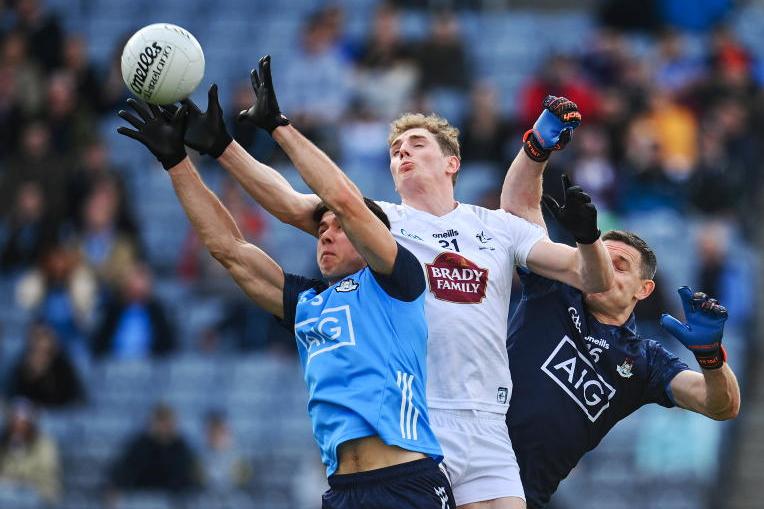

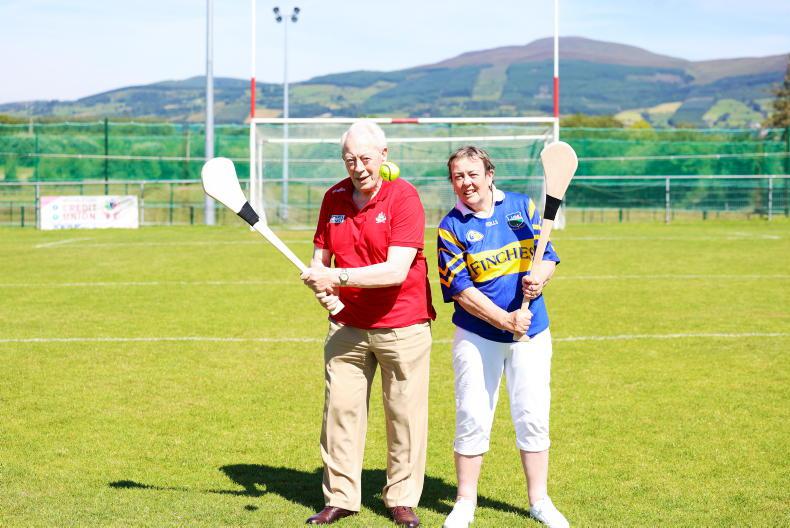
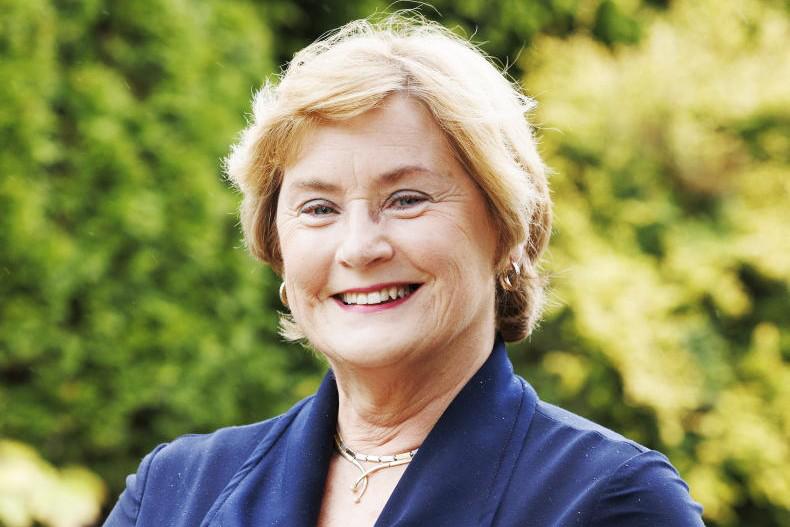
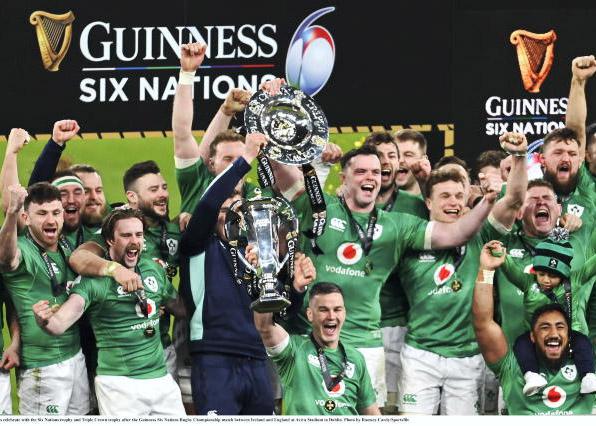

SHARING OPTIONS